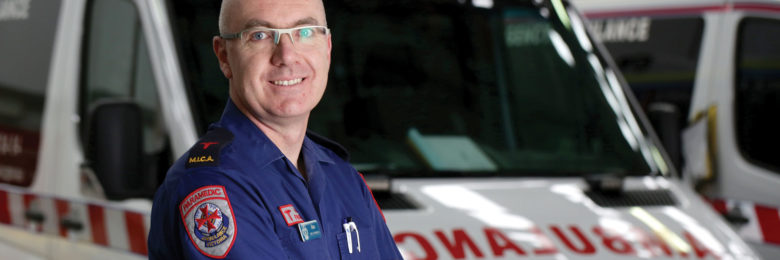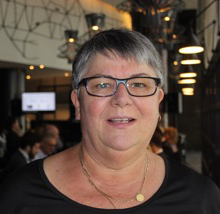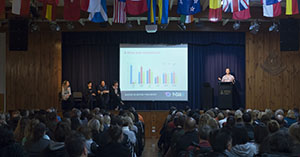
Alan Eade is an intensive-care paramedic based in Melbourne’s CBD. Photo: Fiona Hamilton
A 20-year veteran of the ambulance service, paramedic Alan Eade attends incidents every week involving young people affected by drugs or alcohol.
Around midnight last night we were called to help a 14–year–old boy on the city streets. He and some other teenagers did a snatch-and-run at a bottle shop. He consumed quite a bit of alcohol in a short space of time and became intoxicated. Police saw him and called an ambulance.
He wasn’t life-threateningly unwell and he hadn’t run away from home either but he was taken to a children’s hospital where he could safely sleep off the alcohol and be supervised while he recovered. Since I began this job alcohol has always been present but it was unusual in the under–14s. Now we see children in single-digit years drinking alcohol on a regular basis. It’s more prevalent in a wider group of young people.
More young people are also getting exposed to illegal drugs at an earlier age and they want instant gratification. If under–18s used an illegal substance 20 years ago it was most likely marijuana. But synthetic cannabinoids are the latest drug for this younger age range. They’re reasonably easy to access because young people are incredibly tech savvy and many drugs are imported using the internet.
The primary impact of this latest drug is disorientation and an acute confused state but they can result in kidney failure, liver failure and diffuse organ failure and it’s not infrequent for people to end up having seizures.
Most young people we see fall into a few categories – the isolated or disconnected group that roam the street, or young people provided alcohol by adults, often their parents. Then there are the house parties, celebrations, end-of-year break–ups and school formals where young people use whatever illegal drugs they’ve cobbled together through their networks. They dump it in a pile and help themselves.
When something does go wrong, there’s a reluctance to access emergency help. Young people think they’re going to get into trouble or they haven’t called 000 before and find that daunting. Or they don’t have credit and don’t realise you can dial 000 even when you don’t have credit. They’re more likely to call a parent before they call 000.
Our priority is to help the person who is sick, but one of the hardest things is getting young people to tell us the truth. It helps if we know what substances a person has used so we can work out the best way to keep them safe. Do they go home and sleep it off? Do they go to hospital? Or do we need to give them medicine to keep them safe while we take them to a hospital emergency department?
Parents need to let their children know that they will always support them in making a safe decision, such as calling an ambulance to help themselves or a friend. Help them to make safe choices.
Alan Eade was originally interviewed by Sarah Marinos



